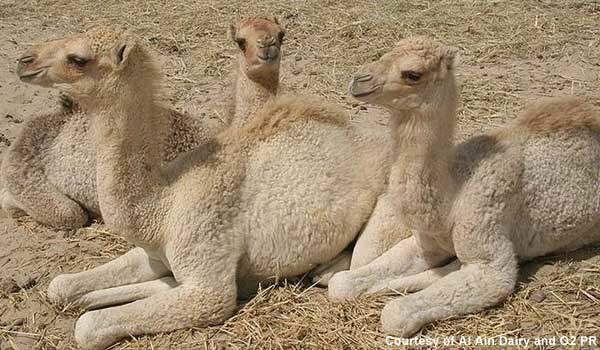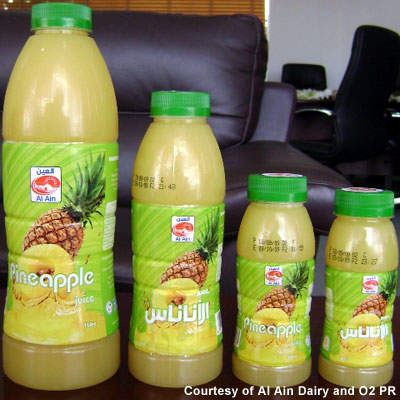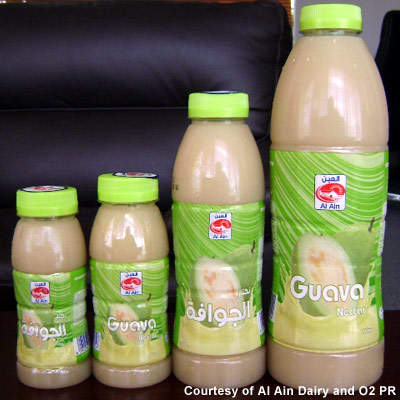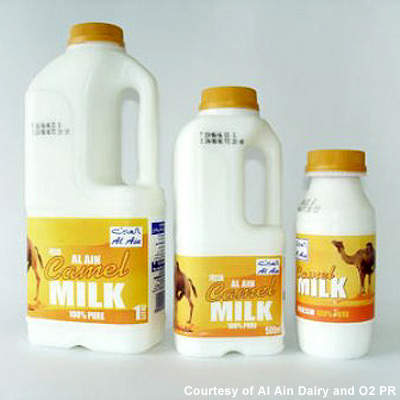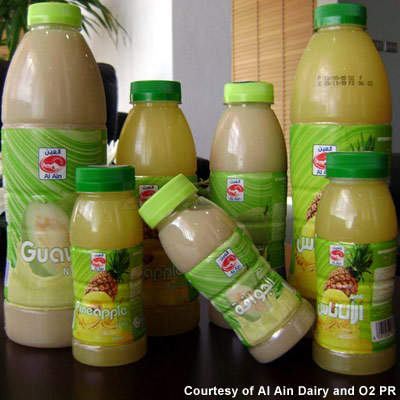Al Ain Dairy was the first established dairy farm in the United Arab Emirates (UAE). The business began in 1981 and now controls three dairy cattle farms with over 3,000 head of milking steers (original stock was imported from Australia but the farm now breeds its own) and one camel farm with more than 200 dairy animals.
The UAE has 26 dairy farms with 15,000 head of milking cattle, but the dairy industry is not well organised and consequently the majority of dairy products used in the country are imported.
The Al Ain Dairy is a pioneer in the UAE dairy farm industry after making significant investments in dairy production technology including high-speed packaging machines, bacteria testing equipment and well-equipped laboratories.
This has allowed them to achieve hazard analysis and critical control point (HACCP) certification (an ISO 22000:2005 certificate was awarded in September 2009), which means they will be able to supply products to the UAE and export them for the international market. The company is aiming to make the UAE self-sufficient with regard to dairy products and export the surplus (there has been an 18% increase in dairy sales since the start of 2009). The dairy produces more than 170,000l of milk per day and employs 750 people.
Products
Al Ain Dairy has also become involved in the fruit juice market with the production of six flavoured juices from fresh juice concentrate, and the production of processed and fermented dairy products such as fruit yoghurts, Benecol yoghurts, coffee drinks, drinking yoghurt, potted cheese, crème caramel, custards, fruit desserts and cream.
The company also supplies camel milk and camel milk ice cream with some success, as since early 2008 the demand for camel dairy products in the UAE has increased.
Camel milk is lower in lipids and lactose and higher in potassium, iron and vitamin C than cow milk and is also 40% lower in cholesterol. It can be consumed by cow milk allergy sufferers without problems. The fat content of camel milk ice cream is about 2.5%, making it a healthier choice than normal ice cream.
Camel milk ice cream is available in three flavours (strawberry, caramel and chocolate) in 100g and 350g tubs. Al Ain is now introducing flavoured camel milk, camel milk chocolate and yoghurts made from camel milk.
Packaging upgrades
In September 2009 Al Ain Dairy purchased two systems to increase their filling capacity for juices and dairy products and their speed of operations. The equipment required an investment of AED4m and was installed at the Al Ain Dairy in UAE.
It included a Primodan rot-o-min cups filling machine, which cost AED1.9m, and a Filmatic rotary bottle filling machine, which cost AED2.1m. The cup filling machine stirs fruit yoghurts, crème caramel, custards and fruit desserts into polyethylene cups and tubs, while the bottle filling machine fills bottles with fresh milk and fruit juices.
The cup filler has already increased the dairy’s production of fermented milk products by 40% as it is able to fill at a rate of more than 8,000 cups per hour. Abdullah Saif Saeed Al Darmaki, CEO of Al Ain Dairy, said: “Prior to installing the new machines, we were not able to fulfil our sales and marketing requirements as the capacity was not enough to produce the allocated quantity. As a result we were not producing enough to cater for full market demand.”
Both filling systems have been supplied with UV equipment to kill bacteria on the lids of tubs during filling, which fulfils international hygiene standards. The Filmatic rotary bottle filling machine can fill a wider range of sizes than was previously possible at the dairy, including 200ml, 250ml, 500ml, and 1,000ml PET and polyethylene bottles.
The new machine can also fill at a much higher rate, increasing productivity. The bottle filler is equipped with a positive pressure sterile air system (HEPA filtered) to maintain a sterile environment and an air flusher that removes dust or dirt contaminants on and inside bottles as they pass through the inverter.
Abdullah Saif Saeed Al Darmaki said: “The Filmatic bottle filling machine has enabled us to increase our capacity of milk and fruit juices from 150,000l to 190,000l a day.”
To maintain hygiene standards Al Ain has also installed a Bactoscan (manufactured by Foss) to increase the quality control of milk. Costing AED600,000, the new equipment can electronically test the hygienic quality of milk and bacteria count in less than nine minutes, compared with the 24h to 48h taken by traditional methods. The machine can collect, stain and count bacteria automatically, providing an unequivocal result.

